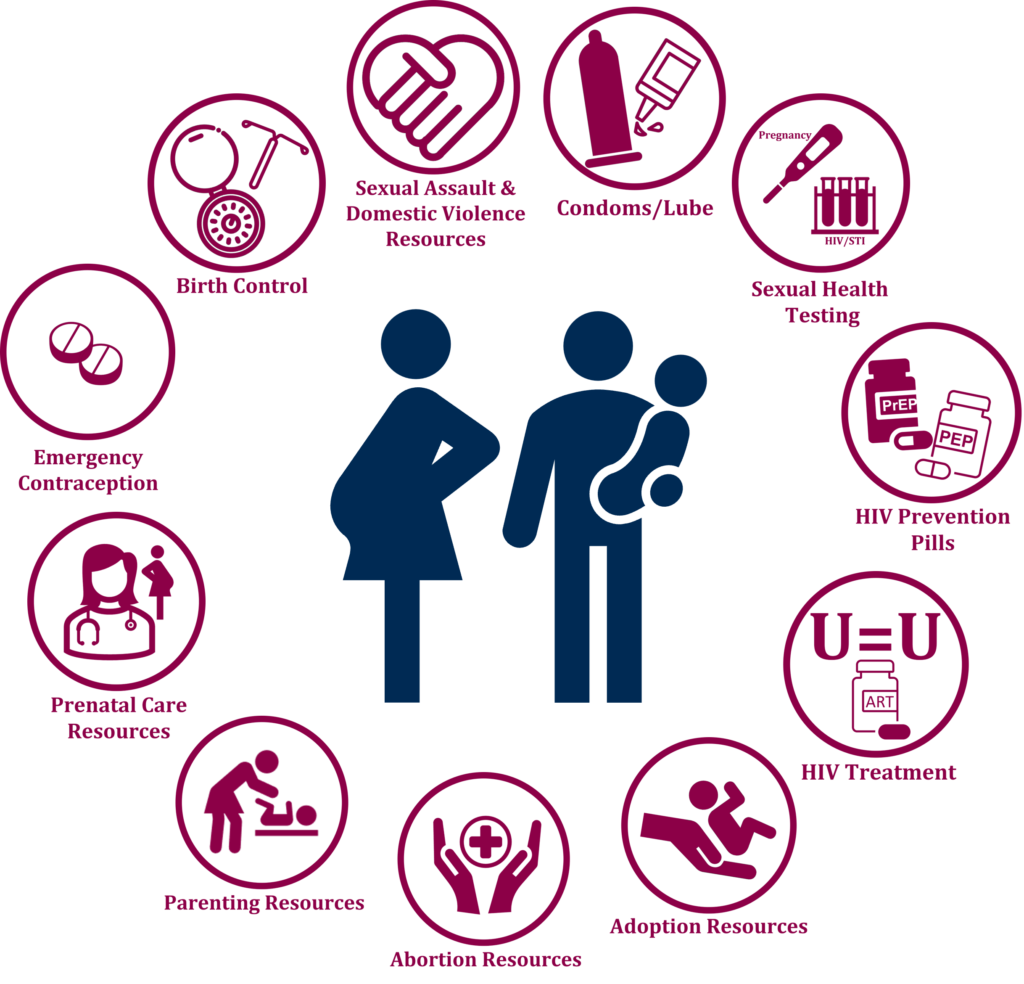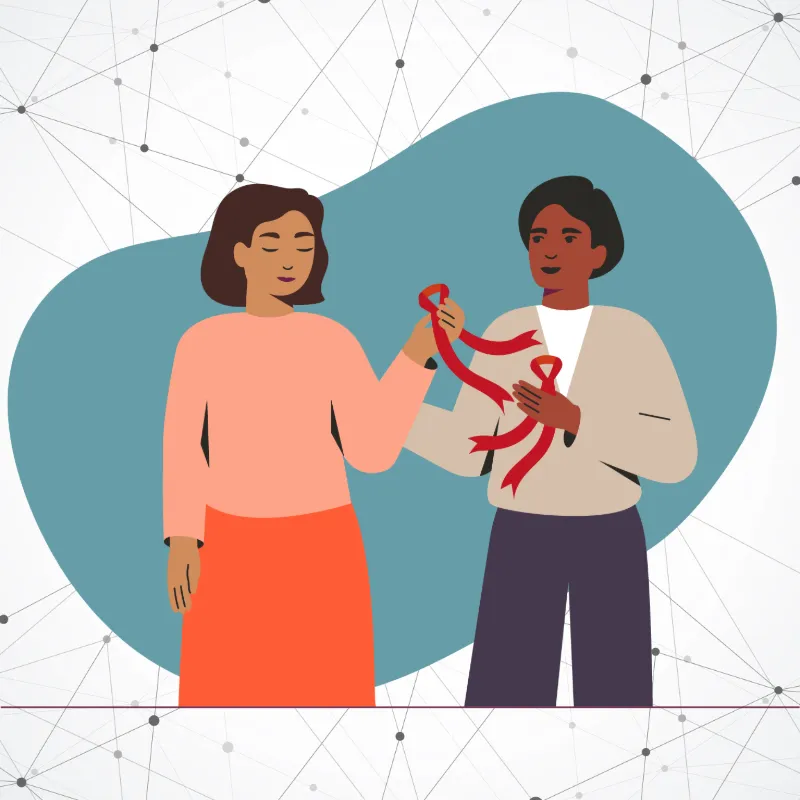Using a Status Neutral Approach to Advance Reproductive & Sexual Health
by Ann Dills, MSW, Technical Assistance Manager
At Provide, we emphasize the need to connect the dots within systems of care to reduce barriers to abortion. What does that mean for providers working in HIV care and prevention?
Prior to my work at Provide, I spent 14 years delivering training and technical assistance to HIV programs across the state of Texas. It was during this time that the idea of a status neutral framework emerged as a way to emphasize purposeful collaboration among community providers and comprehensive support for people living with and vulnerable to HIV. In conjunction with reproductive justice values, we offer the status neutral approach as a way give the people you serve more control over their reproductive health and meet several important health and social service needs at once.
The status neutral approach, introduced first by the NYC Department of Health and expanded on by the Texas HIV planning body, seeks to address the social determinants of health that create disparities and to meet the particular needs of groups who have been disproportionately impacted by HIV—which includes Black and Latine women, transgender men, and other people who can get pregnant. Physician and public health expert Demetre Daskalakis explains in simple terms, “If you do it right, the HIV status of someone is less important. What’s more important is: How do you provide the service to the person to optimize their health?”
A successful approach goes beyond HIV prevention and treatment to create pathways to services that meet the holistic needs of the people who are most impacted by HIV in that community. Some key principles of the status neutral framework include:
- Person-first, not disease first. Providers address the holistic needs of a person in a stigma-free environment and don’t center care solely on HIV-specific needs.
- Access to services regardless of HIV status. Providers and systems are funded in ways that allows them to provide care and support to people regardless of HIV status.
- Variety of services with multiple points of entry. In some agencies (often due to funding streams), HIV testing is the only entry point to accessing necessary services. HIV testing is important, as it helps providers make medical referrals, but it should not be a barrier to other relevant care and services, such as housing assistance, mental health, primary care, dental care, substance use treatment, transportation, and food assistance.
- Responsiveness and community partnerships. Status neutral systems are both proactive and responsive to changing needs of their communities, with a strong emphasis on patient navigation through the service system. Purposeful collaboration and coordination with community partners, including those who are HIV-focused and those who are not HIV-specific, ensures an array of services are available to meet holistic needs.
For people living with HIV, status neutral approaches mean individuals will have immediate access to services that improve their quality of life and their ability to manage their health. For people who do not have HIV, but are more vulnerable, access to other priority non-HIV services is HIV prevention. For example, having access to safe and stable housing alone can reduce vulnerabilities that increase chances for acquiring HIV.
At Provide, we emphasize that HIV service providers also need to consider the comprehensive sexual and reproductive health needs of the people they serve. For Black and Latine women and other people who can get pregnant, this includes birth control and emergency contraception, abortion care, and prenatal care. Having the skills and resources to counsel an individual on their pregnancy options is lifesaving, life-affirming care for all people, including individuals impacted by the intersection of abortion and HIV stigma.

As providers, you can play a role in affirming the rights of people living with HIV to have full, satisfying sexual and emotional lives. You can uphold that individuals are the experts of their own experiences, can make decisions for themselves without pressure or coercion, and have the means to act on their decisions. You can use a status neutral framework to foster purposeful care coordination and reduce barriers to accessing the full range of reproductive and sexual health services.
Together, we can transform health care to end the stigma and create long-term change for the betterment of our communities.
Ann Dills is Provide’s Technical Assistance Manager. She has worked in public health since 2000, with experience across multiple health systems and a focus on sexual health and wellness. As a systems consultant, she is passionate about working with communities and programs on multiple levels to create pathways that better serve marginalized and vulnerable populations. To request a TA consultation, email [email protected].

